SenseCAP Devices Enabling Sophisticated Fermentation Control in Baijiu Distillery
By Ellie Cai 2 years agoTo address the need of digital transformation in traditional Baijiu brewing industry, Seeed Studio has helped to build up a Smart Fermentation Management and Control Platform for a Baijiu manufacturer in Shanxi, China.
- Solution: Intelligent Fermentation Control in Baijiu Distillery
- Client: A Famous Baijiu Manufacturer
- Partner: A System Integrator Partner
- Seeed Products used: SenseCAP S2103 CO2, Tempterature, and Humidity Sensor, SenseCAP LoraWAN DTU, Food-grade Temperature Sensor Probe, SenseCAP Outdoor Gateway, SenseCAP Portal
- Industry: Worksite Operation
- Solution Deployed in: Taiyuan, Shanxi Province, China
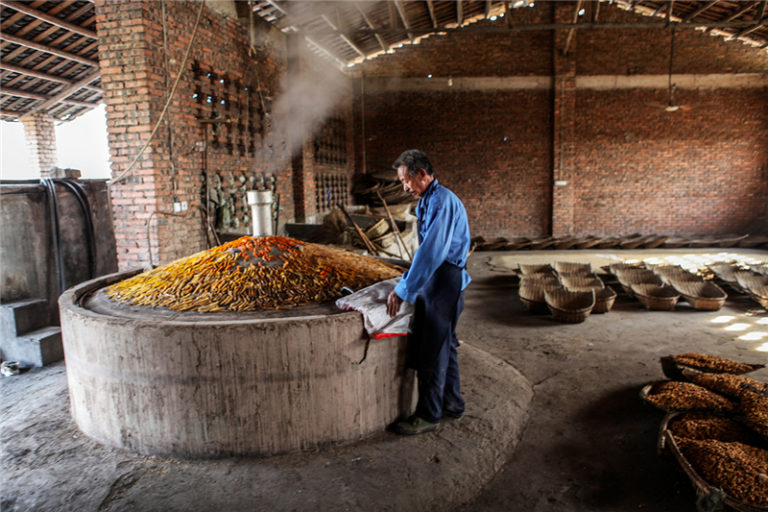
Background
Chinese Baijiu, a labor-intensive industry, has a much lower level of automation compared to other brewing industries. In recent years, the Baijiu industry has actively sought digital transformation by replacing simple and repetitive heavy labor with machines. However, if it wants to take a step forward towards Industry 4.0 to achieve digitalization and intelligence, some necessary transformation are still required. The digital transformation of the Baijiu industry is also an upgrade of the overall strength of enterprises, which is beneficial to the sustainable development of enterprises.
Partner
Located in Taiyuan, Shanxi Province, China, the manufacturer is the only state-owned liquor enterprise in Taiyuan that specializes in producing traditional Chinese Baijiu, and is also the only municipal-owned state-operated alcohol brewing enterprise in Taiyuan. Currently, its distillery has two liquor brewing bases, with a production capacity of 15,000 tons of raw liquor per year and an annual output of about 30,000 tons of finished products, with a production capacity of up to 50,000 tons per year. The product market covers the entire province and some cities in neighboring regions such as Hebei, Henan, Shaanxi, and Inner Mongolia.
Challenges
Temperature and humidity play an important role in the fermentation process of grains. Suitable temperature can promote the fermentation to achieve better results. Exploring the most scientific and reasonable temperature and humidity is of great significance in further improving the taste and quality of liquor and enhancing the market competitiveness of enterprises, as well as improving the automation level of brewing.
Currently, the traditional manual method is widely used in China to measure the temperature of grains, which involves manually inserting a glass temperature sensor into the distiller for measurement and recording. However, this operation mode has limitation:
- The traditional glass thermometer is usually not more than 0.3 meters, which is insufficient for measuring the temperature of a fermentation pit (which is usually 2-3 meters deep), and can only measure the temperature on the surface of the grain pile. Therefore, it cannot reflect the temperature inside the fermentation pit and the accuracy of the data is greatly reduced.
- The workload of measuring each fermentation points is large and lack of efficiency. Take this project as an example. There are 3654 tanks in 58 fermentation rooms, taking 4-6 hours for 10 workers to measure and record the temperature for all tanks. If the number of workers is increased, it will inevitably increase the production cost.
- It is difficult to ensure the authenticity and effectiveness of the mannually recorded data. Manual recording of data is prone to input errors or omissions. Different workers might have different measuring points, resulting in poor comparability, accuracy and completeness of the data entered. Also, the data lacks consistency and traceablity in traditional methods. It is hard to observe the temperature trend during the fermentation process, which is not conducive to making systematic analysis of the fermentation process and to improvment.
Solution
Compared with traditional methods, an Intelligent Fermentation Control System, however, can automate and optimize these processes, using IoT sensors, data analytics, and cloud platform to maintain optimal conditions for yeast growth and alcohol production.
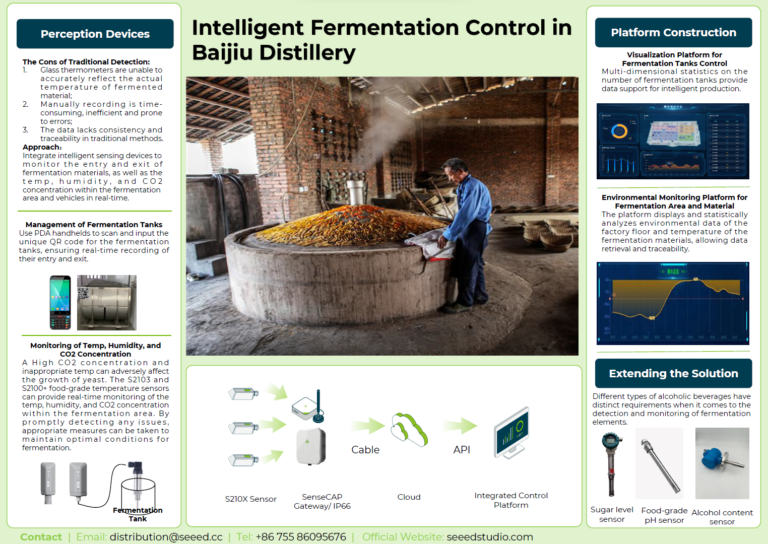
Based on a privately deployed IoT management platform, Seeed Studio utilizes LoRaWAN wireless sensors to monitor the real-time entry and exit of the fermentation tanks, as well as the temperature, humidity, and CO2 concentration of fermentation rooms and tanks. Adjustments can be made in a timely manner to ensure the safety of the production environment.
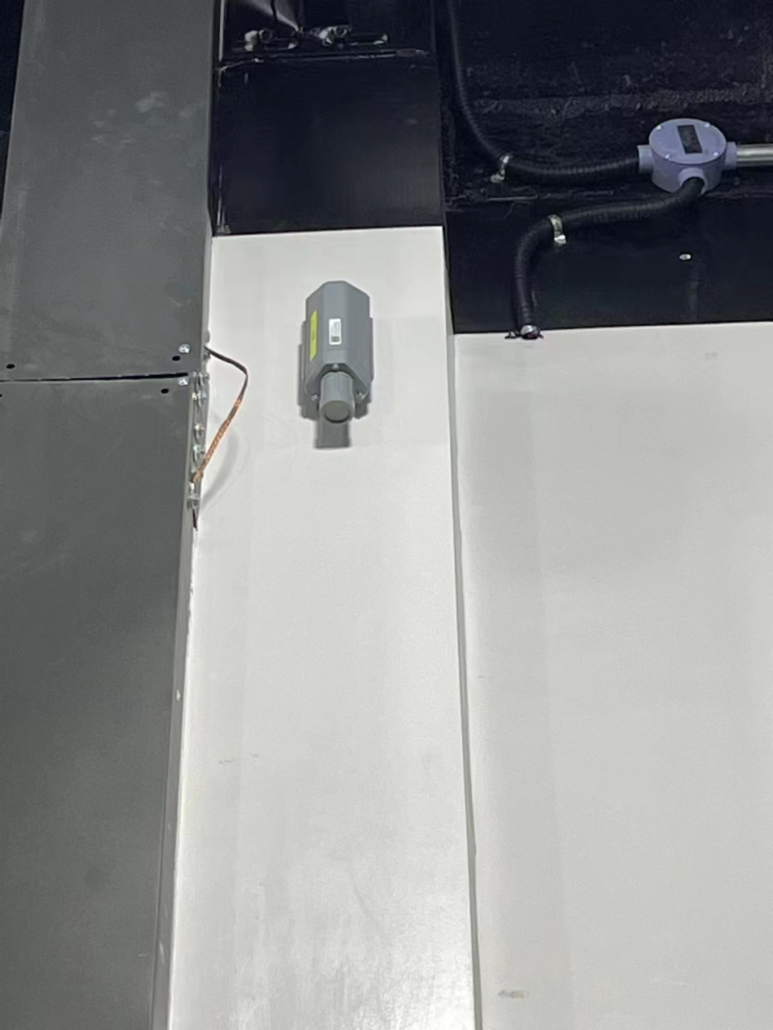
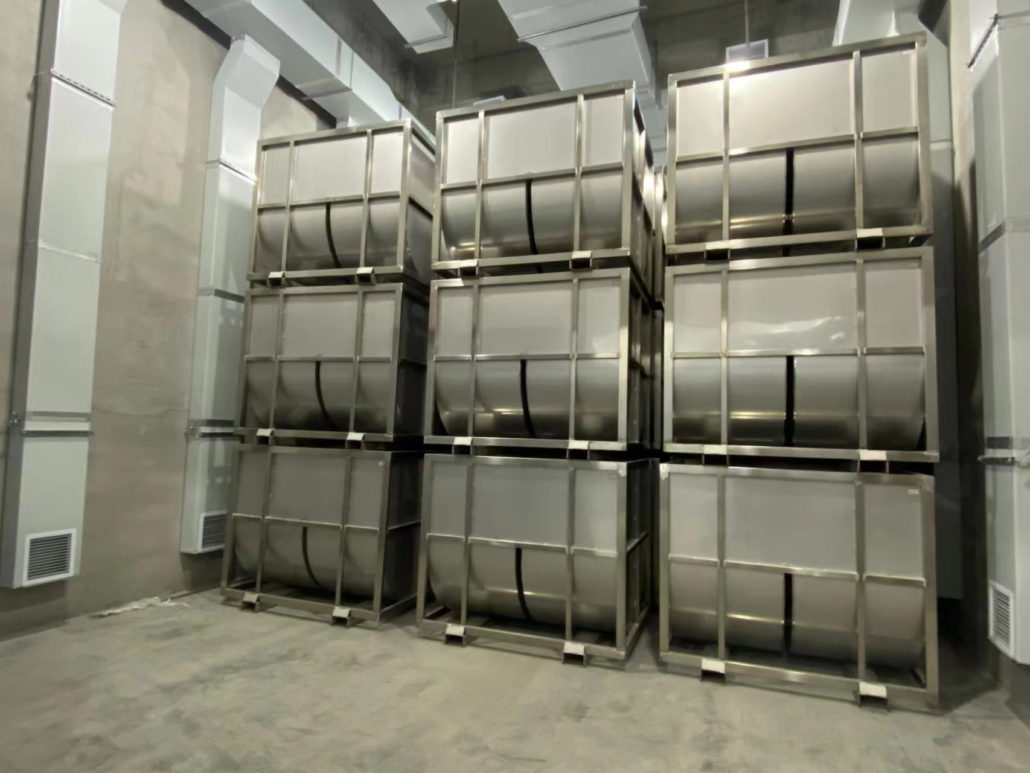
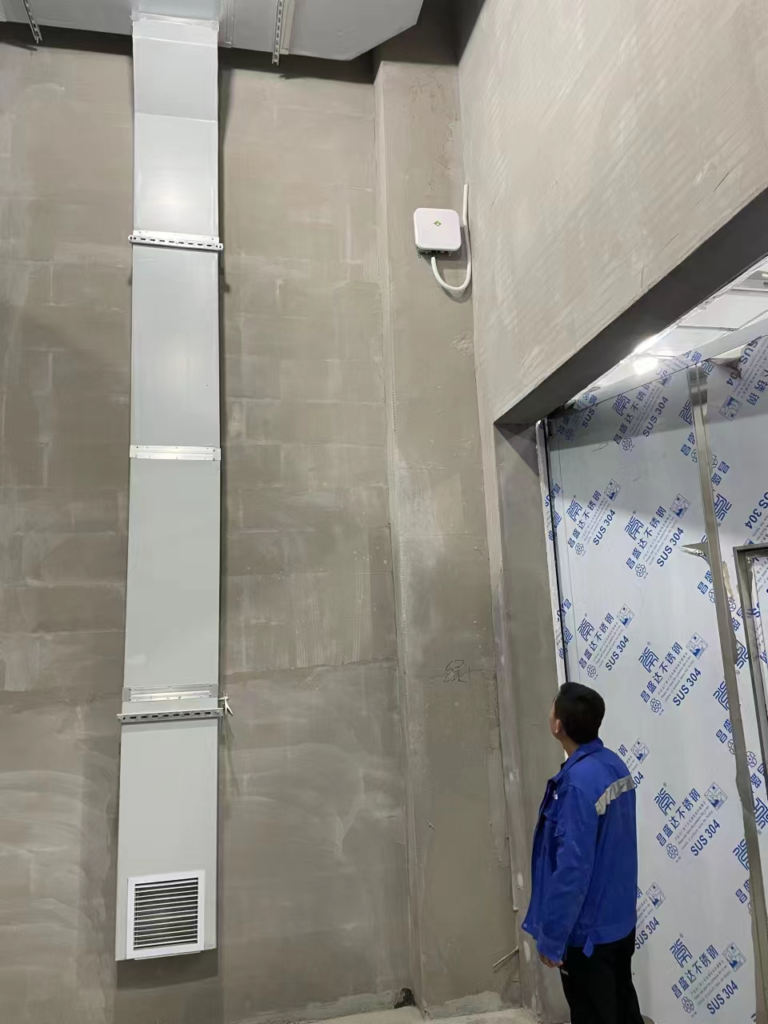
- Traditional temperature measuring tools such as thermometers and temperature gauges are replaced by the SenseCAP S210x CO2, temperature and humidity sensors.
- The SenseCAP LoraWAN Data Logger + RS485 multi-point temperature sensor (food-grade) can outport signals in real time. The sensor is strong and durable, and can measure the temperature at different heights in the fermented grain pile with a long probe, fully reflecting the temperature in different positions of the grain.
- Management of the entry and exit of fermentation tanks: Assign a QR code to each fermentation tanks. Use a PDA handheld to scan and record the entry and exit of them in real-time. The statistics include various dimensions such as tank total count, outbound count, inventory count and inventory proportion, which can be visualized on the management platform.
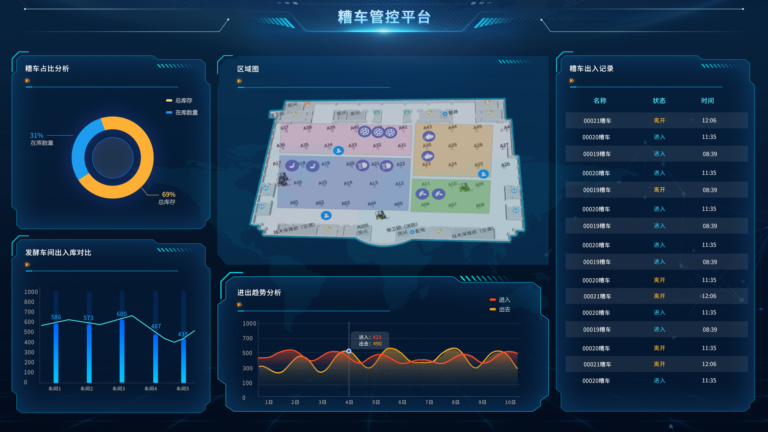
4. Environmental Monitoring Platform: The platform displays and analyzes the environmental data of the factory floor and the temperature of the fermentation materials, allowing data retrieval and traceability.
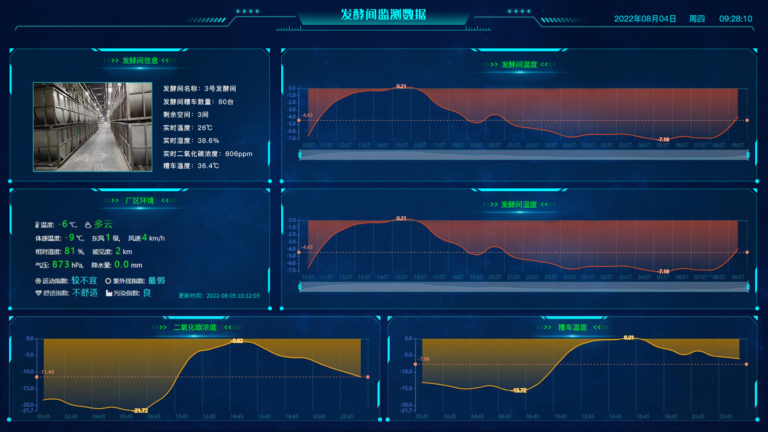
Result
By adopting intelligent fermentation control, the Baijiu distillery can achieve several benefits. Firstly, the quality and consistency of the final product can be improved, as the system can ensure that the fermentation conditions are kept within the narrow range required for optimal flavor and aroma. Secondly, the efficiency of the production process can be enhanced, as the system can monitor and adjust the fermentation rate based on real-time data, reducing waste, and increasing yield. Thirdly, the sustainability of the industry can be enhanced, as the system can reduce the energy consumption required for fermentation, lowering the environmental impact of the production process.
Overall, the intelligent fermentation control in Baijiu distillery represents a significant opportunity for the industry to improve its efficiency, quality, and sustainability. As technology continues to advance, we can expect to see even more sophisticated and powerful solutions emerge, driving innovation and growth in this sector.
This project also contributes to the following Sustainable Development Goals (SDG 9, 11, 12, and 17).
